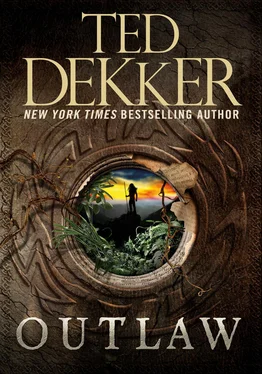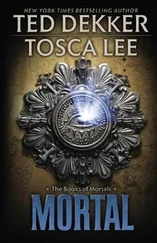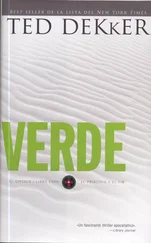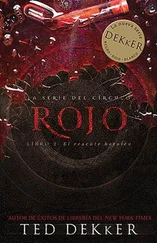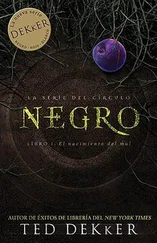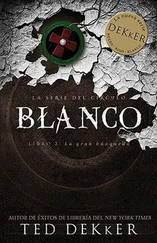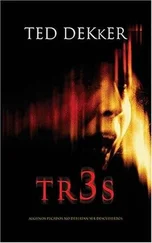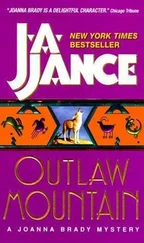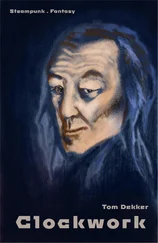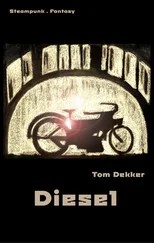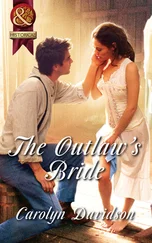“What do they say?” I asked.
“They like this teeth, miss,” Lela said. “This children like you very much.”
Then Lela did something that took me off guard. She placed her hand in mine and we walked hand in hand. Something deep in my spirit began to break, but I could not recognize it, not yet.
The sound of so many feet pattering behind me on the hard-packed path still resonates to this day. Birds were calling above us, reptiles and small creatures rustled in the brush on either side, and here I was, walking down the middle of it all like the pied piper, leading a band of dark-skinned children.
For several minutes I walked with Lela’s hand in mine, unsure why her simple gesture stirred up so much emotion.
Then I felt small fingers slide into my left hand, and I looked down to see that the child with the pure, high voice had caught up and followed Lela’s example. She grinned up at me, barely able to contain her joy at my acceptance of her.
“Yuliwam,” she said.
Yuliwam. It took me only a moment to hear my name. Julian had become Yuliwam.
The little girl said my name again, beaming. “Yuliwam.”
I nodded. “Yuliwam.” The fact that wam was in my name mattered not to me.
I walked on, holding her hand tightly, aware that the small girl was looking back at her siblings and friends, glowing with pride. My world started to cave in on me as I walked. Where I was seen by the adults as an ugly wam, I was the object of fascination and pride among the children.
We’ve all seen the pictures of children making mud pies in the middle of a concentration camp, oblivious to the terrible suffering around them.
In that moment the Tulim children became, to me, the same picture of innocence in the midst of savagery. I walked for a hundred yards, treasuring both hands in my own, when it suddenly all became too much.
I remember the moment clearly. We had just come to the edge of a clearing that Momos insisted we skirt, but I couldn’t think to turn right or left. My heart was breaking.
I glanced down at the little songbird who beamed up at me with big brown eyes and rounded cheeks, and I began to sob. My grief and regret and desperation settled over me and I sank to my knees under their weight. I threw my arms around the child and clung to her tightly, surely terrifying her, although I can’t be sure because I could not stop sobbing long enough to look.
There for the first time I pressed innocent Tulim flesh against my own as if it were my own, because in that moment the little girl became living, breathing hope to me. For a long time I wept on my knees, and none of them—not Lela, not Momos, not the children—made any attempt to discourage me. They stood still, silent, watching.
If I had not broken down, and they had not gone so silent, they might not have heard the drone of an aircraft flying far above us. I certainly wouldn’t have, crying or not. My ears were not trained to hear such a distant, abstract sounds.
There was a mumble of questions and then a cry of alarm: Woruru, woruru, woruru ! The children scattered back into the forest, led by Momos, who was running and yelling at Lela to bring me.
I jumped to my feet, spinning around, fearing an ambush. “What?”
“Hurry, miss! This woruru evil spirit!”
The airplane’s distant drone reached me then, a faint sound similar to their name for this evil spirit in the sky. Worurururururu …
The little girl beside me was now crying, frightened by the others’ panic. I swept her up in my arms and fled back into the jungle, half-convinced myself that I must not let the giant metal demon in the sky see me.
Even as I did, another thought occurred to me. Were they looking for me? I should make a scene! But as soon as I thought it, I realized that the plane was far too high to see a human on the ground.
When the danger had passed, Momos and the children returned with glee, sure of having avoided a close call with certain death from the sky. It was no wonder the Tulim had never been identified from the air as a unique indigenous group.
Five minutes later we were past the clearing. Once again I walked with Lela. Once again the little girl hurried along beside me, hand snuggled in my own.
“ Yellina! An Yellina !” she announced to me, smiling wide. Yellina, I’m Yellina !
She was the vision of a treasure.
“Hi, Yellina.”
She pointed to me with a tiny finger.
“ Yuliwam! Kat Yuliwam !” Your name is Yuliwam . And so it was.
For the first time since being taken captive, I felt truly human.
Chapter Twelve
BATHING AT the river with the children that day washed me of more darkness in one sitting than I knew was possible—so much that I came to think of it as a kind of baptism. My newfound freedom taught me many things, both about myself and about how the Tulim saw the world.
I learned how effective body language can be in bridging language barriers, particularly the use of hands.
I learned how absurd my clothing appeared to their eyes. Was I an animal that needed a coat to hide my flesh? I saw how proud Momos was to have charge over me, directing orders at the children with far more bark than bite. Seeing me naked had absolutely no effect on him. He might have seen my hand and been as impacted.
I learned that the evil spirits that live in crocodiles are also known to hide in the deepest parts of swimming holes and pools.
I learned that the Tulim use soft fuzzy leaves from the mbago plant, the jungle’s version of soap, to wash their bodies. I learned that a fibrous stalk with a biting, minty taste, called rapina , cleaned teeth quite effectively when rubbed vigorously over the enamel.
I learned that there were two ways to rid the body of unwanted hair—a requirement for cleanliness among all Tulim. You could either pluck your hairs one by one, a decidedly painful prospect, or you could use a sharpened piece of bamboo, nearly as painful.
I learned from Lela that when Tulim women had their menstrual period, they used rolls of tightly bound moss. And here I had thought Procter & Gamble had invented tampons.
I learned that in a far part of the jungle there existed tiny men no taller than a finger who lived in small, square logs. This they knew with certainty, having heard them firsthand. Lela knew the name of this square log.
It was called radio .
I learned that the Tulim love color, especially when applied to the body. Indeed, the body makes a better canvas than any flat object, because it lives and breathes, they explained.
But mostly I learned that there are bonds tying all human beings together in ways we cannot fully understand, and those bonds are never more obvious than between children. For those few hours I spent with the children, I became one myself, stripped of my misery and my sense of self-importance.
In the weeks and months following my baptism in that river’s pool, I gradually came to accept the fact that, although I could never thrive with the Tulim, I could survive.
I had new friends among the Tulim now. The children, who were more taken with my novelty than my ugliness. The little girl Yellina, who was an orphan. She lived in a hut on the far side of the village. Whenever I emerged from my hut she was nearby, and always one of the first to run over to place her small hand in mine.
Without any particular intention on my part, I gradually began to learn how to live among the Tulim, at least from my perspective. From theirs I’m sure that I looked the complete buffoon.
I could not dress like them. That would be too much. The closest I could bring myself to nakedness was to cut the legs off my capris and crop my sleeveless blouse to deal with the heat. Along with my canvas shoes and underwear, they were my only clothes, and I had to wash them every other day. There was positively no way to keep the soot from the fires from blackening them.
Читать дальше
